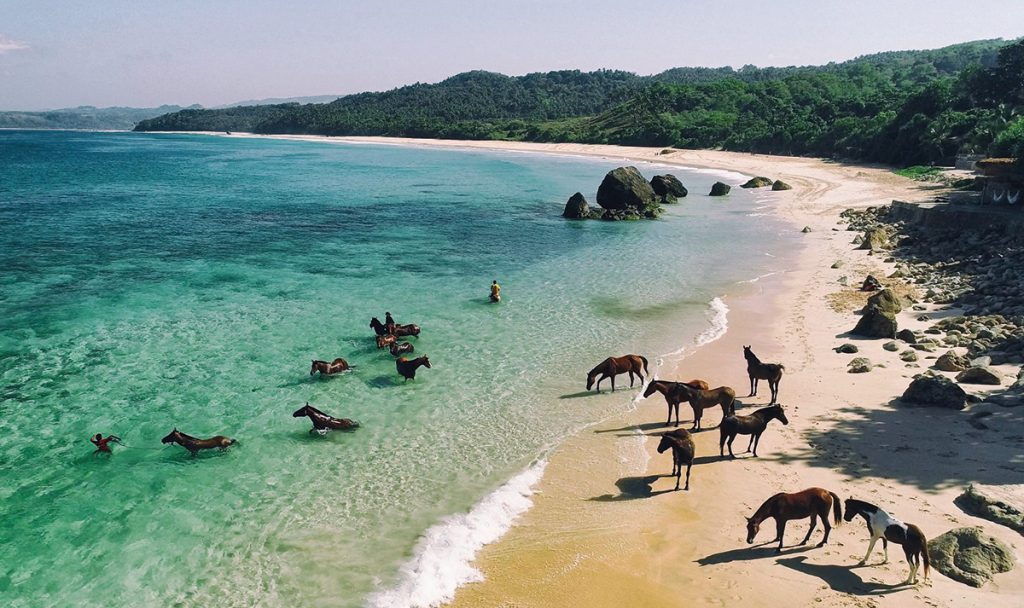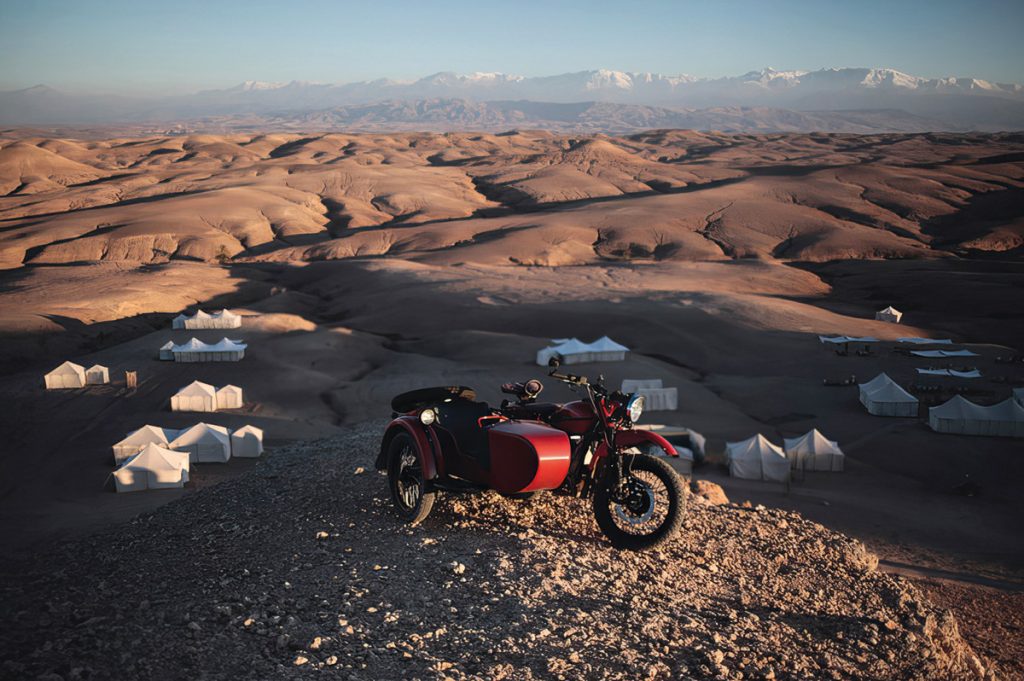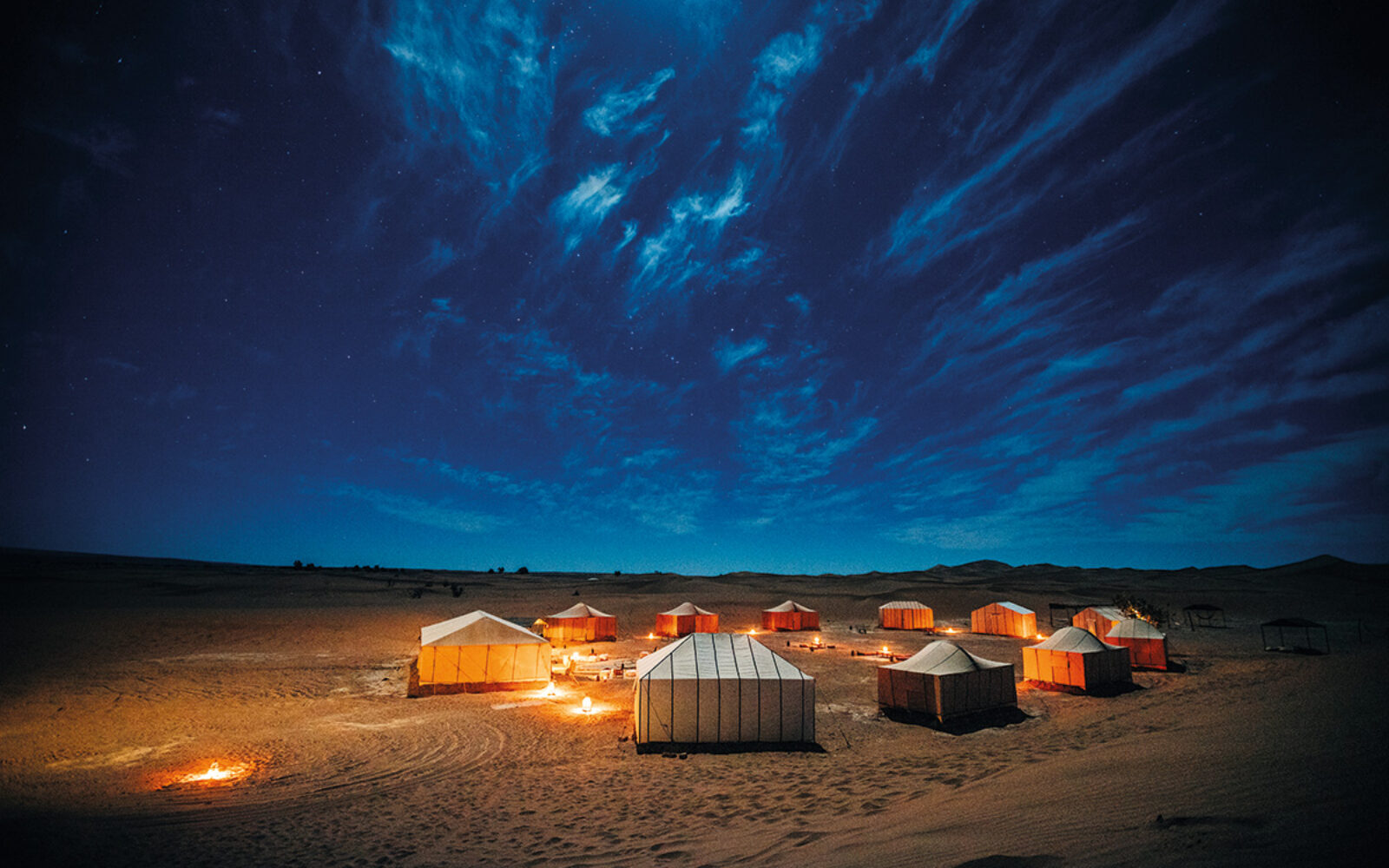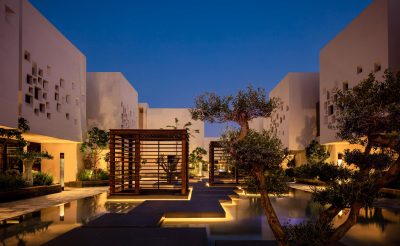Evading tourist traps, selfie-snapping and social media posting, a more mindful approach is being adopted when vacationing. The Slow Travel Movement is all about engagement — just not the digital kind
Arm extended. Smartphone tilted. An iconic landmark. And crowds. Lots and lots and lots of people from all pockets of the world, eagerly doing the same. In 2023, 1.3 billion of us travelled internationally, and although funding economies, the influx of tourists to popular heritage sites is detrimental to their longevity. Venice is sinking, the Great Pyramids have eroded, coral in Thailand’s Phi Phi Islands has degraded, and two-thirds of the Great Wall of China has crumbled. So is it time to think and travel differently? The Slow Travel Movement suggests so. Advocating a more considered, conscientious, road less travelled (quite literally) approach, slow travel could be the antidote to mainstream mass tourism.
The concept has its roots both in early tourism history in the tradition of the Victorian ‘Grand Tour’, when travellers would embark on lengthy journeys often relying on the communities they passed, and in the more recent Italian Slow Food movement. Gaining traction in the 1980s, the Slow Food Movement emerged in Rome when activists sought to safeguard local food culture and a slower pace of life by opposing McDonald’s opening an outlet near the city’s famous Spanish Steps.

NIHI Sumba Resort is the perfect spot for authentic experiences
The Slow Travel Movement has a similar ethos. Championing preservation, sustainability and minimal environmental impact, it encourages followers to favour a slower, more mindful vacationing experience, allowing for personal growth and authentic connection with the surrounding environment and the community within. Taking time to understand traditions and the rhythm of local life should supersede the dopamine hits of selfies by tourist hot spots or Trip Advisor-derived tick lists. Carbon-intensive internal flights must be relinquished, where possible.
“We’ve seen a trend we refer to as ‘low and slow’ travel, with many travellers taking fewer internal flights and becoming more ‘grounded’ by opting for ‘low’ travel — by car, train, foot, or bicycle,” explains Tom Marchant, the co-founder of Black Tomato, a luxury travel curator offering extraordinary, detail-oriented adventures that span all seven continents. “This can manifest by flying into one destination and then taking ground transport to explore the surrounding area, rather than making multiple flights across the itinerary.” Of course, in such scenarios, transfers are slower, which is no bad thing in slow travel. “This allows visitors to dwell in the landscape and soak up the atmosphere more intentionally,” says the globetrotting pioneer, who also notes a welcome rise in those holidaying for prolonged periods by virtue of remote working.
With travel experiences cultivated to trip length, budget and intention, Black Tomato guests might find themselves enjoying a gourmet dinner deep in the candle-lit crater of an Icelandic volcano, rehabilitating a river ‘highway’ as one of the earth’s greatest animal migrations unfolds in British Columbia, or celebrating the profound rituals of Mexico’s Día de los Muertos shoulder to shoulder with the people of Chiapas. Such experiences can be found in See you in the Moment — a curated collection of more than 30 of what Tom refers to as ‘remarkable travel moments’. “Above all, you’ll revel in the immaterial,” Tom says of white-water rafting through Peru’s Sacred Valley, which too forms part of the series, “in watching towering Andean cliffs rise in the distance and hearing bird calls rise above the water’s roar.”

From tackling tough terrain to unforgettable wildlife experiences, adventuring outside your comfort zone creates memories to last a lifetime
Lighthouse Arabia founder, chairwoman and clinical psychologist Dr Saliha Afridi PsyD believes we can apply such meaningful engagement to everyday life, too: “We live in a fast-paced world where everyone is measuring their success with all they can do and acquire in the shortest amount of time. But when all’s said and done, they don’t remember any of it, and they start planning their next holiday or purchase shortly after,” she says. “By adopting a slower and more mindful approach to holiday (and to life), although the moments may be fewer, the experience is rich. By slowing down, we make time and space for savouring, memorising, and appreciating the moments as we relate to them. They become engrained in our memory and enrich our lives long after the moment ends.”
Regarding travel and being present, Dr Afridi starts with the obvious and necessary – putting devices away. “When I’m looking with my eyes and not a camera, when I am feeling the moment fully rather than trying to capture it, whether in a big city or on a quiet beach, it ends up being a mindful escape.” And mindful doesn’t necessarily mean less. Challenging the status quo, the TedEx speaker tells MOJEH: “I think it is about time that we change the idea that slowing down means you are doing less or achieving less — you slow down to go deeper, to value the experience, which leaves a lasting imprint on your mind and heart. We also build our mental capacity and resources by slowing down and engaging with what we are encountering and experiencing, which is better for our overall wellbeing.”
Read Next: Why London Should be on Your Radar this Eid Holiday
- Words by Vhairi Jane Moir





